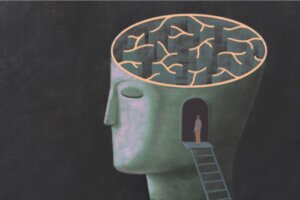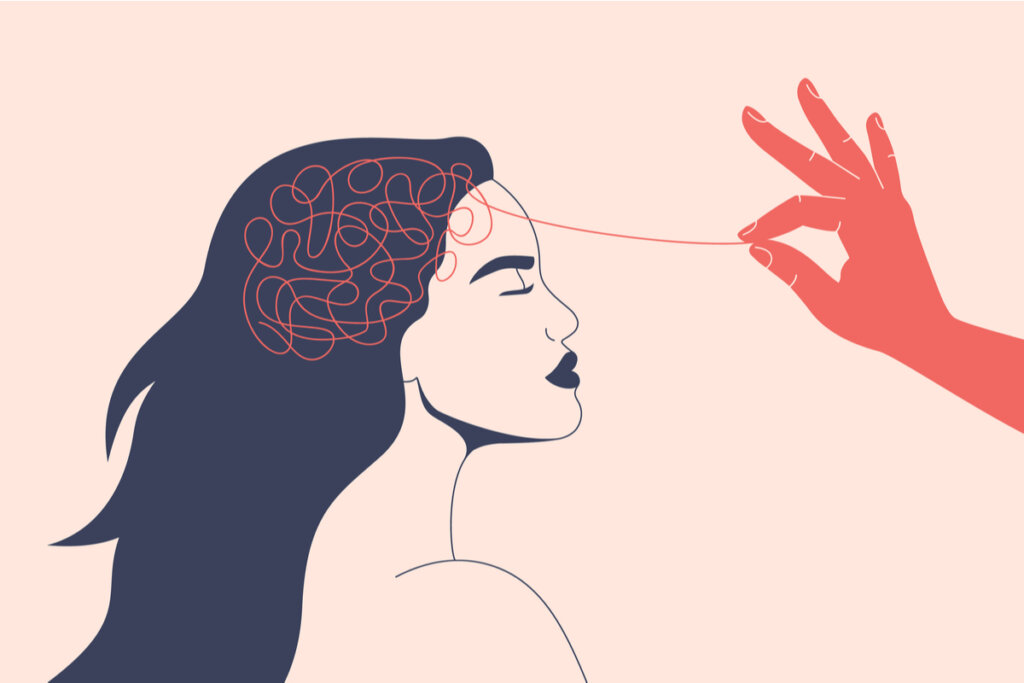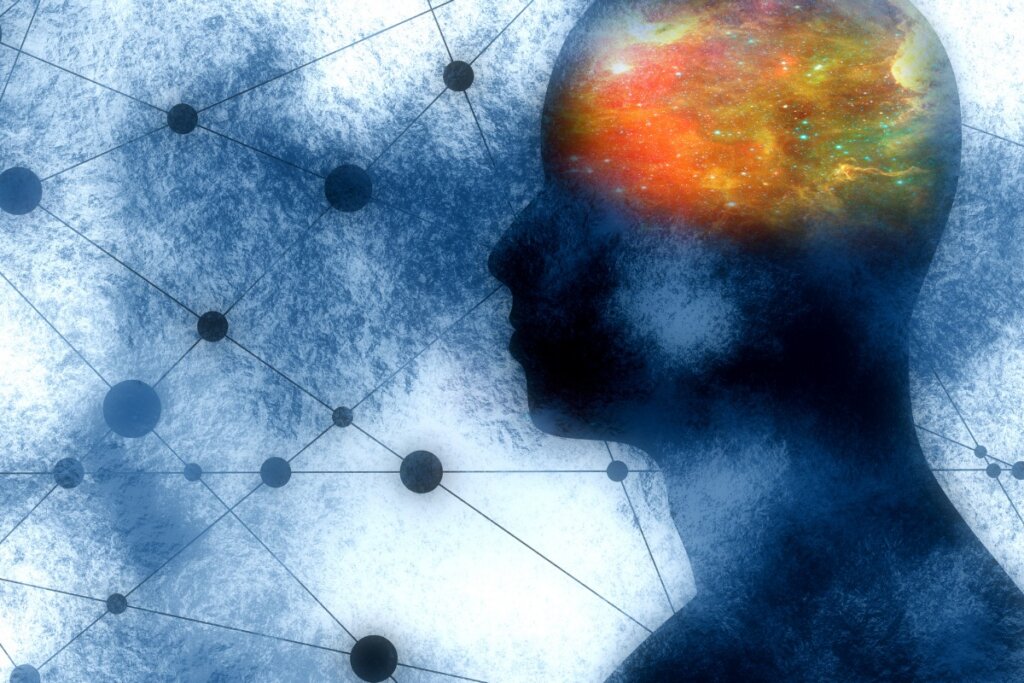Unconscious Coding: The Language of Your Mind


Written and verified by the psychologist Valeria Sabater
When Stanley Kubrick released his classic movie, The Shining, it received a great deal of criticism. Most of it came from admirers of Stephen King’s work. They claimed that Kubrick’s production was nothing like the novel. However, the controversial director understood the horror genre extremely well and he produced an innovative movie.
As a matter of fact, Kubrick conducted an in-depth investigation into the unconscious codes of the human being to get to know how to disturb the viewer. He based his investigation on Umberto Eco’s theory of codes and Freud’s uncanny theory. His objective was to disturb the viewer in the darkest recesses of their mind. And, he achieved it.
The unconscious coding system refers to the way we process and label reality. Although we filter and conceptualize what surrounds us in a particular way, there are common elements that we all share. The collective unconscious, identified by Carl Jung, helps us to understand many of our fears as a species.
The human mind speaks its own language, one that goes beyond phonemes and tenses. Let’s explore.
Many of our irrational thought patterns are dysfunctional codes that we create at some point in our lives.

The unconscious coding system
Everything we experience and the way we interpret it almost automatically creates a mental label. A combination of sensations is also added to this mental label. This is how we gradually shape our unconscious coding systems.
As an example, say that, when you were a child, your grandmother made you apple pie. You loved it. Now, every time, you go to the supermarket and see an apple, it evokes the smell of that intoxicating dessert. But not only that, it also makes you think of your grandmother’s love. Indeed, much of what happens to you is recorded in your mind in order to support your experiences.
One of the first people to analyze and study this fascinating process was William James. His work and research on sensation and perception explained how the brain builds and shapes the world for us. Everything that passes through our senses is subsequently analyzed, recorded, and stored.
Therefore, you create your own codes. They allow you to understand what’s surrounding you and react to what you see.
The way we label each stimulus is linked with our emotions and how we feel.
Brain codes
Programming dominates society today. Cell phones, social media, and apps are all created based on programming codes. In fact, there’s nothing as powerful as an algorithm. It’s a system capable of governing what information reaches you and what eludes you.
As curious as it may seem, the unconscious coding system of the brain is also a form of programming. In this case, the parameters and the mechanisms that orchestrate it are biological, but they’re just as decisive. Indeed, these codes mediate how you think and even the way you feel and handle difficulties.
We all have certain ‘wrong’ codes that orchestrate unhappiness and, in some extreme cases, psychological disorders. For example:
- Negative thoughts. “I know I’m going to fail”. “Nobody loves me, I’m worthless”. These kinds of interpretations are harmful types of programming that have been internalized.
- The expectations of others. There are certain limiting mental perceptions and narratives that your parents may have passed on to you in the form of inherited codes. For instance, you might believe that, because you’re a woman, you shouldn’t aspire to certain professions.
- Distorted emotional codes. Many people possess dysfunctional dynamics when it comes to managing their emotions. Getting carried away in anger is an example of an incorrect code.
Incorrect codes are psychological narratives that we’ve integrated into our brains. They reinforce everything from anxiety to low self-esteem.

Reprogramming your mental codes
Knowing that there’s an unconscious coding system in your brain is useful in a couple of ways. Firstly, it helps you understand that your mind shapes the world for you. Secondly, you can carry out certain ‘rescheduling’ to improve your life.
However, changing the erroneous codes of your brain is no easy task. In fact, you may need the help of a psychologist. After all, detecting which thoughts, beliefs, attitudes and behaviors are counterproductive to your well-being is a task that requires specialized and in-depth training.
That said, you can give it a try by following these steps:
Find the code that’s causing you discomfort
In its internal programming, the human mind includes erroneous codes in the form of cognitive biases and completely irrational thoughts. Stopping to become aware of how you think and how your reasoning and judgments are making you feel is the first step to improving the situation.
Testing the wrong code
The next step is extremely important. Moreover, it’s the most complex because of the mental effort it requires. Once you’ve detected your negative thoughts and judgments, ask yourself the following questions:
- Is what I’m thinking true? What evidence is there to support it?
- Is what I’m thinking or believing useful to me in some way? Is it logical?
- If it’s not useful to me and is making me feel worse, why am I reinforcing it?
Reprogramming the wrong code
Your unconscious coding system requires that the codes you shape are healthy. Only by doing this can you guarantee your well-being and improve your ability to face problems. Therefore, the last step in eliminating harmful ‘algorithms’ from your minds is positive reprogramming. Ask yourself:
- What should I tell myself to strengthen my self-esteem?
- How can I turn around the limiting beliefs that are making me unhappy?
- How can I reformulate the narrative that my mother transmitted to me that’s preventing me from being myself?
Finally, as you can see, it isn’t easy to reprogram your codes of thought. Despite this fact, doing so will be well worth it. But, don’t hesitate to ask for expert help if you’re continuing to reinforce unconscious codes, as these can act like real Trojans.
When Stanley Kubrick released his classic movie, The Shining, it received a great deal of criticism. Most of it came from admirers of Stephen King’s work. They claimed that Kubrick’s production was nothing like the novel. However, the controversial director understood the horror genre extremely well and he produced an innovative movie.
As a matter of fact, Kubrick conducted an in-depth investigation into the unconscious codes of the human being to get to know how to disturb the viewer. He based his investigation on Umberto Eco’s theory of codes and Freud’s uncanny theory. His objective was to disturb the viewer in the darkest recesses of their mind. And, he achieved it.
The unconscious coding system refers to the way we process and label reality. Although we filter and conceptualize what surrounds us in a particular way, there are common elements that we all share. The collective unconscious, identified by Carl Jung, helps us to understand many of our fears as a species.
The human mind speaks its own language, one that goes beyond phonemes and tenses. Let’s explore.
Many of our irrational thought patterns are dysfunctional codes that we create at some point in our lives.

The unconscious coding system
Everything we experience and the way we interpret it almost automatically creates a mental label. A combination of sensations is also added to this mental label. This is how we gradually shape our unconscious coding systems.
As an example, say that, when you were a child, your grandmother made you apple pie. You loved it. Now, every time, you go to the supermarket and see an apple, it evokes the smell of that intoxicating dessert. But not only that, it also makes you think of your grandmother’s love. Indeed, much of what happens to you is recorded in your mind in order to support your experiences.
One of the first people to analyze and study this fascinating process was William James. His work and research on sensation and perception explained how the brain builds and shapes the world for us. Everything that passes through our senses is subsequently analyzed, recorded, and stored.
Therefore, you create your own codes. They allow you to understand what’s surrounding you and react to what you see.
The way we label each stimulus is linked with our emotions and how we feel.
Brain codes
Programming dominates society today. Cell phones, social media, and apps are all created based on programming codes. In fact, there’s nothing as powerful as an algorithm. It’s a system capable of governing what information reaches you and what eludes you.
As curious as it may seem, the unconscious coding system of the brain is also a form of programming. In this case, the parameters and the mechanisms that orchestrate it are biological, but they’re just as decisive. Indeed, these codes mediate how you think and even the way you feel and handle difficulties.
We all have certain ‘wrong’ codes that orchestrate unhappiness and, in some extreme cases, psychological disorders. For example:
- Negative thoughts. “I know I’m going to fail”. “Nobody loves me, I’m worthless”. These kinds of interpretations are harmful types of programming that have been internalized.
- The expectations of others. There are certain limiting mental perceptions and narratives that your parents may have passed on to you in the form of inherited codes. For instance, you might believe that, because you’re a woman, you shouldn’t aspire to certain professions.
- Distorted emotional codes. Many people possess dysfunctional dynamics when it comes to managing their emotions. Getting carried away in anger is an example of an incorrect code.
Incorrect codes are psychological narratives that we’ve integrated into our brains. They reinforce everything from anxiety to low self-esteem.

Reprogramming your mental codes
Knowing that there’s an unconscious coding system in your brain is useful in a couple of ways. Firstly, it helps you understand that your mind shapes the world for you. Secondly, you can carry out certain ‘rescheduling’ to improve your life.
However, changing the erroneous codes of your brain is no easy task. In fact, you may need the help of a psychologist. After all, detecting which thoughts, beliefs, attitudes and behaviors are counterproductive to your well-being is a task that requires specialized and in-depth training.
That said, you can give it a try by following these steps:
Find the code that’s causing you discomfort
In its internal programming, the human mind includes erroneous codes in the form of cognitive biases and completely irrational thoughts. Stopping to become aware of how you think and how your reasoning and judgments are making you feel is the first step to improving the situation.
Testing the wrong code
The next step is extremely important. Moreover, it’s the most complex because of the mental effort it requires. Once you’ve detected your negative thoughts and judgments, ask yourself the following questions:
- Is what I’m thinking true? What evidence is there to support it?
- Is what I’m thinking or believing useful to me in some way? Is it logical?
- If it’s not useful to me and is making me feel worse, why am I reinforcing it?
Reprogramming the wrong code
Your unconscious coding system requires that the codes you shape are healthy. Only by doing this can you guarantee your well-being and improve your ability to face problems. Therefore, the last step in eliminating harmful ‘algorithms’ from your minds is positive reprogramming. Ask yourself:
- What should I tell myself to strengthen my self-esteem?
- How can I turn around the limiting beliefs that are making me unhappy?
- How can I reformulate the narrative that my mother transmitted to me that’s preventing me from being myself?
Finally, as you can see, it isn’t easy to reprogram your codes of thought. Despite this fact, doing so will be well worth it. But, don’t hesitate to ask for expert help if you’re continuing to reinforce unconscious codes, as these can act like real Trojans.
All cited sources were thoroughly reviewed by our team to ensure their quality, reliability, currency, and validity. The bibliography of this article was considered reliable and of academic or scientific accuracy.
- Dember, W. N. (1990). William James on Sensation and Perception. Psychological Science, 1(3), 163–166. http://www.jstor.org/stable/40062629
- Shamma, S. A., & Micheyl, C. (2010). Behind the scenes of auditory perception. Current Opinion in Neurobiology, 20(3), 361–366. https://doi.org/10.1016/j.conb.2010.03.009
- Rolls ET, Treves A. The neuronal encoding of information in the brain. Prog Neurobiol. 2011 Nov;95(3):448-90. doi: 10.1016/j.pneurobio.2011.08.002. Epub 2011 Sep 2. PMID: 21907758.
- Rolls ET, Grabenhorst F, Franco L. Prediction of subjective affective state from brain activations. J Neurophysiol. 2009 Mar;101(3):1294-308. doi: 10.1152/jn.91049.2008. Epub 2008 Dec 24. PMID: 19109452.
This text is provided for informational purposes only and does not replace consultation with a professional. If in doubt, consult your specialist.







